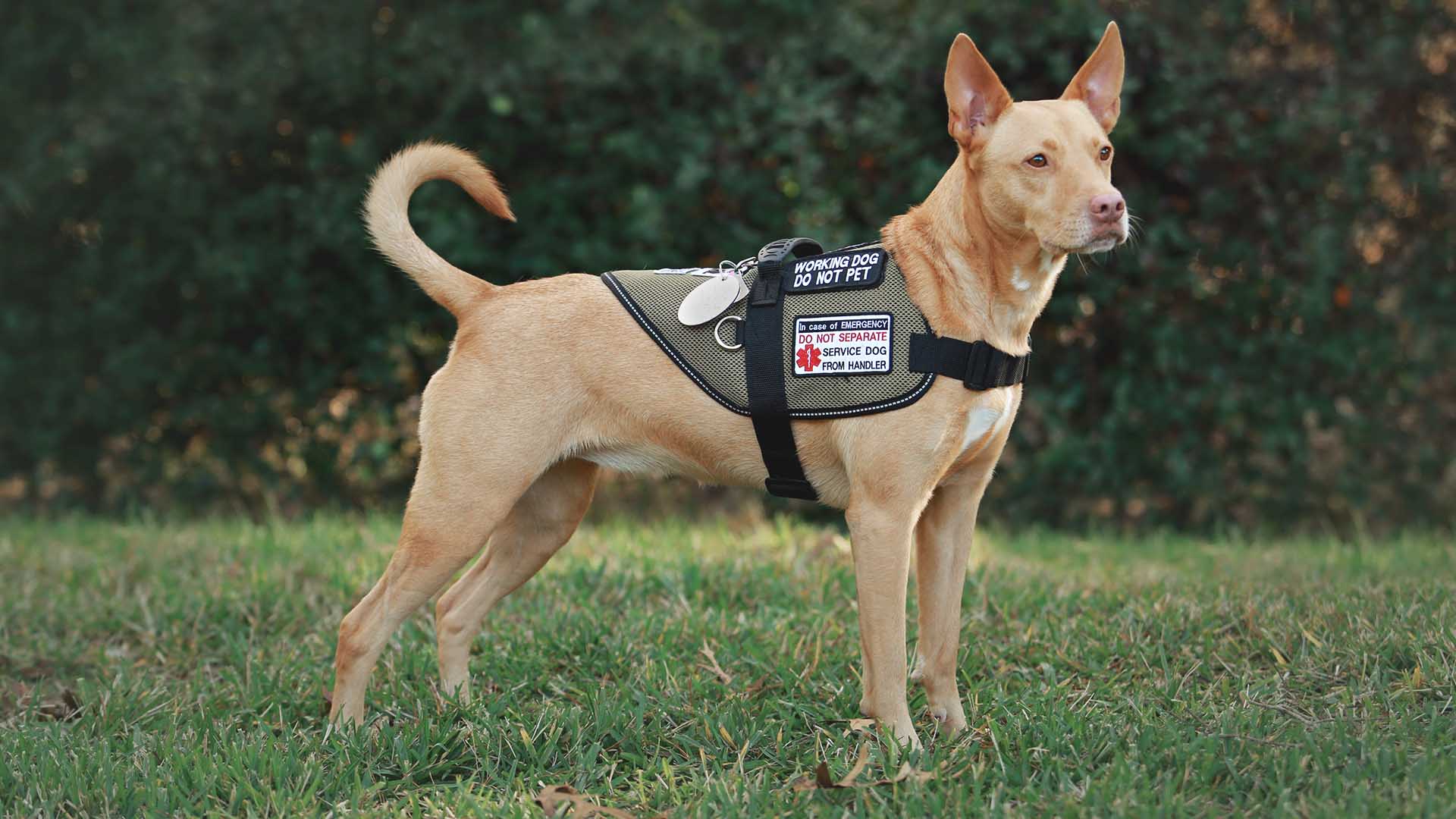Understanding the Role and Importance of Service Dogs
A service dog is a specially trained canine companion that helps individuals with disabilities perform tasks they are unable to do on their own. Unlike pets, service dogs are working animals that provide practical support and enhance the quality of life of their handlers. In the United States, service dogs are protected by the Americans with Disabilities Act (ADA), which grants individuals with disabilities the right to bring their service animals into public spaces.
Types of Service Dogs and Their Unique Purposes
Guide Dogs for the Visually Impaired:
These dogs assist individuals who are blind or visually impaired by navigating obstacles and providing guidance in various environments.
Hearing Dogs:
Trained to alert individuals with hearing impairments to important sounds, such as alarms, doorbells, or approaching vehicles.
Mobility Assistance Dogs:
Aid individuals with mobility challenges by retrieving items, opening doors, and providing stability and balance support.
Seizure Alert and Response Dogs:
Some dogs are trained to anticipate and respond to seizures, providing assistance during and after an episode.
Medical Alert Dogs:
These dogs are trained to detect changes in their handler’s body odor or behavior, signaling the onset of a medical condition such as diabetes or allergies.
Psychiatric Service Dogs:
Assist individuals with psychiatric conditions by providing emotional support, interrupting harmful behaviors, and creating a calming presence.
Training and Certification
Service dogs undergo extensive training to ensure they can perform specific tasks and remain well-behaved in public spaces. Training typically includes obedience, task-specific skills, and socialization. The process can take several months to years, depending on the tasks the dog needs to master and the individual needs of the handler.
It’s important to note that there is no official certification or registry for service dogs in the United States. While some organizations provide voluntary certifications, the ADA does not require certification, and businesses are not allowed to ask for proof of certification or training.
Service dogs play a vital role in enhancing the independence and quality of life of individuals with disabilities. Through their specialized training, these canine companions offer invaluable assistance, ranging from guiding the visually impaired to providing support for those with psychiatric conditions. Understanding the importance of service dogs fosters a more inclusive and supportive society where individuals with disabilities can navigate the world with confidence and autonomy.
Service Dogs Should Not Be Confused with Emotional Support Dogs
While both service dogs and emotional support dogs provide valuable assistance to individuals, they serve distinct roles and have different levels of training, legal rights, and responsibilities.
The key difference between service dogs and emotional support dogs lies in the specific tasks performed and the level of training required. Service dogs are highly trained to perform tasks directly related to a person’s disability and have broad public access rights, while emotional support dogs provide comfort and companionship without the same level of training or legal protections.
It’s essential for individuals to understand the distinctions between the roles of service animals and emotional support animals to ensure proper accommodation and respect for the rights of handlers and their assistance animals.
Service Dogs vs. Emotional Support Dogs: Understanding the Distinctions and Legal Rights
Service Dogs

Definition:
A service dog is specially trained to perform specific tasks for individuals with disabilities. These tasks are directly related to the person’s disability and are designed to help them with daily activities and navigate the world more independently.
Training:
Service dogs undergo extensive training to perform tasks that mitigate the effects of a person’s disability. This training includes obedience, task-specific skills, and socialization to ensure the dog behaves appropriately in various environments.
Legal Rights:
Service dogs are protected under the Americans with Disabilities Act (ADA) in the United States. This legislation grants individuals with disabilities the right to be accompanied by their service dogs in public places, including restaurants, stores, and public transportation. Businesses and organizations are required to make reasonable accommodations for service dogs and their handlers.
Public Access:
Service dogs are allowed to accompany their handlers in all public areas, and they have broad access rights. Handlers are not required to disclose the nature of their disability, and businesses are generally not allowed to ask for proof of the dog’s training or certification.
Emotional Support Dogs

Definition:
An emotional support dog (ESD) provides companionship and comfort to individuals with emotional or psychological conditions. While they offer emotional support, they are not trained to perform specific tasks related to a disability.
Training:
Emotional support dogs do not require the same level of specialized training as service dogs. Their primary role is to provide comfort and alleviate symptoms associated with emotional or psychological conditions.
Legal Rights:
Emotional support dogs are not granted the same level of legal protection as service dogs under the ADA. In the United States, they are covered under the Fair Housing Act (FHA), which allows them to live in housing with no-pet policies. Unlike service dogs, airlines are not required to permit emotional support dogs, or any type of emotional support animal, to fly.
Public Access:
Emotional support dogs do not have the same public access rights as service dogs. While they may be allowed in certain public places, they are not guaranteed access to all locations, and businesses may have varying policies regarding their presence.








